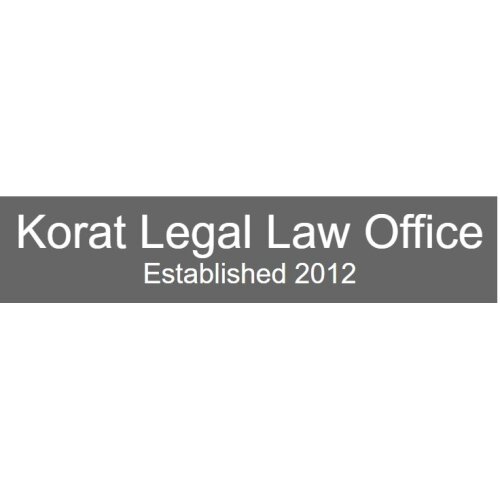Best Franchising Lawyers in Nakhon Ratchasima
Share your needs with us, get contacted by law firms.
Free. Takes 2 min.
List of the best lawyers in Nakhon Ratchasima, Thailand
Thailand Franchising Legal Articles
Browse our 1 legal article about Franchising in Thailand written by expert lawyers.
- What Are The Legal Aspects of Franchising in Thailand?
- Franchising has grown as a vibrant and profitable business model in Thailand, drawing a varied range of foreign and local entrepreneurs. As Thailand's economy continues to expand strongly, especially in areas such as hotel, retail, food and beverage, and services, franchising becomes an increasingly appealing choice for investors seeking to... Read more →
About Franchising Law in Nakhon Ratchasima, Thailand
Nakhon Ratchasima, often referred to as Korat, is a significant economic hub in Thailand, attracting numerous business ventures, including franchising operations. Franchising in Thailand is governed under specific regulations designed to protect both franchisees and franchisors and to promote fair business practices. In Nakhon Ratchasima, franchising is an appealing option due to the region's thriving economy, strategic location, and growing population. Understanding the legal framework surrounding franchising is crucial to ensure compliance and to foster successful business relationships.
Why You May Need a Lawyer
Engaging a lawyer in the field of franchising in Nakhon Ratchasima can be crucial in several situations. These include drafting or reviewing franchise agreements, ensuring compliance with Thai franchise laws, resolving disputes between franchisees and franchisors, protecting intellectual property rights, and providing advice on business operations. Legal expertise can help navigate complex legal requirements and offer protection against potential liabilities. A knowledgeable lawyer can also provide strategic advice to maximize business opportunities in the franchising sector.
Local Laws Overview
The key aspects of local laws relevant to franchising in Nakhon Ratchasima include the Trade Competition Act, which regulates business practices to prevent unfair competition, and specific franchise regulations that require clear disclosure of franchise terms. Franchise agreements must comply with Thai Civil and Commercial Code and should address essential elements such as territory, fees, duration, and termination. Additionally, protecting trademarks and intellectual property is vital in the franchising process to safeguard brand identity and reduce risks of infringement.
Frequently Asked Questions
What is franchising?
Franchising is a business model where a franchisee is granted the rights to operate a business under the brand and business methods of a franchisor, usually in exchange for fees and adherence to established guidelines.
How are franchise agreements regulated in Thailand?
Franchise agreements in Thailand are subject to laws under the Civil and Commercial Code, as well as specific regulations regarding disclosure and fair trade practices under the Trade Competition Act.
Do I need a franchise lawyer for opening a franchise in Nakhon Ratchasima?
It is highly recommended to consult with a franchise lawyer to ensure compliance with local laws, protect your legal rights, and effectively negotiate terms of the franchise agreement.
What should be included in a franchise agreement?
A franchise agreement should include details about franchise fees, territorial rights, duration, trademark use, operational guidelines, training, and terms for termination or renewal.
Are there specific regulations for foreign franchisors in Thailand?
Yes, foreign franchisors must comply with Thai commercial regulations, which might include restrictions under the Foreign Business Act, dependent on the business area.
How can a franchise lawyer assist with disputes?
A franchise lawyer can provide mediation services, represent clients in arbitration or court proceedings, and offer strategic guidance to resolve disputes favorably while minimizing risks.
What are the main intellectual property considerations in franchising?
Key considerations include trademark registration and protection, ensuring the franchisee's use of trademarks complies with established guidelines, and protecting proprietary business methods.
Can franchise agreements be terminated early?
Franchise agreements may have provisions for early termination under specific circumstances, such as breach of contract, but these must be clearly outlined in the agreement to avoid disputes.
What ongoing obligations do franchisees typically have?
Obligations can include paying ongoing fees, adhering to operational standards, participating in promotional activities, and maintaining the brand’s image.
How is franchising beneficial for businesses in Nakhon Ratchasima?
Franchising offers business expansion with lower capital investment risks, provides employment opportunities, and helps in building a consistent brand presence in the growing economic environment of Nakhon Ratchasima.
Additional Resources
Several resources can be helpful for those seeking legal advice on franchising in Nakhon Ratchasima. These include the Department of Business Development (DBD) for registration and compliance guidance, the Thai Chamber of Commerce for networking and support, and legal associations such as the Lawyers Council of Thailand and local legal firms specializing in franchising law.
Next Steps
If you require legal assistance with franchising in Nakhon Ratchasima, consider consulting with a local lawyer specializing in this field. They can provide clarity on legal requirements, help negotiate franchise agreements, and offer ongoing support. To find a lawyer, you can start by seeking recommendations from business associations or conducting an online search for reputable law firms in the region.
Lawzana helps you find the best lawyers and law firms in Nakhon Ratchasima through a curated and pre-screened list of qualified legal professionals. Our platform offers rankings and detailed profiles of attorneys and law firms, allowing you to compare based on practice areas, including Franchising, experience, and client feedback.
Each profile includes a description of the firm's areas of practice, client reviews, team members and partners, year of establishment, spoken languages, office locations, contact information, social media presence, and any published articles or resources. Most firms on our platform speak English and are experienced in both local and international legal matters.
Get a quote from top-rated law firms in Nakhon Ratchasima, Thailand — quickly, securely, and without unnecessary hassle.
Disclaimer:
The information provided on this page is for general informational purposes only and does not constitute legal advice. While we strive to ensure the accuracy and relevance of the content, legal information may change over time, and interpretations of the law can vary. You should always consult with a qualified legal professional for advice specific to your situation.
We disclaim all liability for actions taken or not taken based on the content of this page. If you believe any information is incorrect or outdated, please contact us, and we will review and update it where appropriate.









